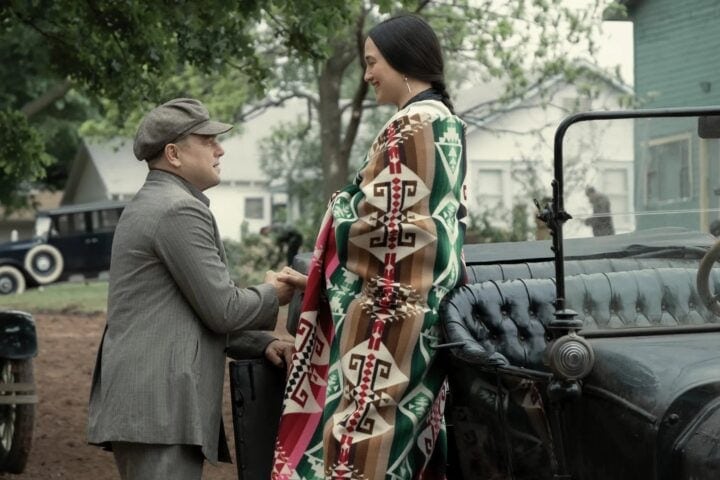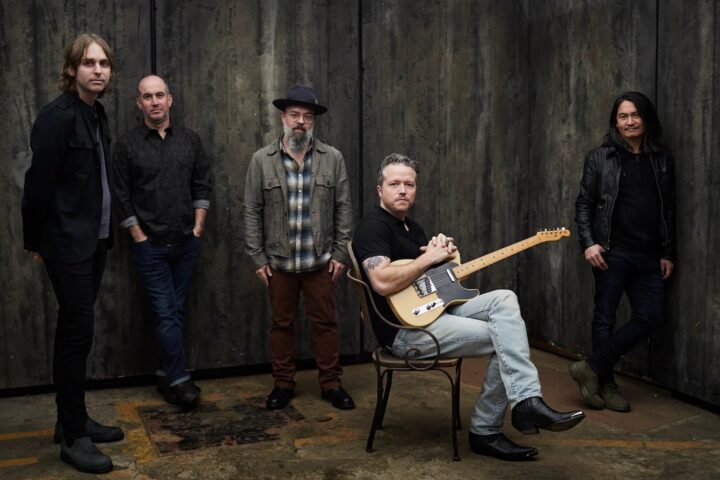Jason Isbell’s 2013 album Southeastern was a harrowing recounting of the singer-songwriter’s battle with addiction. The solitary nature of the album’s creation—it was recorded without his usual band, the 400 Unit—allowed Isbell’s rich storytelling to take center stage. Foxes in the Snow, the Tennessee-based musician’s first solo album since 2015’s Something More Than Free, is a companion of sorts to Southeastern, written and recorded in the aftermath of Isbell’s split from wife and bandmate Amanda Shires.
Earnest and quietly distraught, Foxes in the Snow takes an even more stripped-down approach than Southeastern, which, though largely guitar and piano-based, still featured some full-fledged Southern rock. The album features only Isbell and one 85-year-old acoustic guitar, with no percussion or accoutrements of any sort, resulting in his most starkly realized effort to date.
On “Gravelweed,” Isbell considers how previous songs that he’s written about his relationship to Shires play differently now, which metastasizes into a consideration of how one’s past actions may not stand the test of time. “Now I’ve lived to see my melodies betray me,” he laments, apologizing that “love songs all mean different things today.” He entertains the idea of wishing he could get angry, and his lack of vitriol and pettiness is striking across most of the album.
Later, on the transcendent “True Believer,” Isbell caves to those impulses but only for a moment, expressing frustration about how he’s suddenly viewed as a villain by Shires’s friends, whom he once liked. “All your girlfriends said I broke your fucking heart, and I don’t like it,” he wails on the track’s chorus, practically spitting the swear.
As is his wont, though, Isbell’s disposition is almost uniformly sincere and virtuous throughout the rest of Foxes in the Snow. He’s one of the best craftsmen of uncool, old-fashioned, and irony-free country-rock, and the realizations that he’s come to as a sober and more contemplative person are humane in a way that comes close to anti-drama.
But Isbell’s keen pen and sharp performances usually find a way around it. The title track kicks off with the lyric: “I love my love/I love her mouth/I love the way she turns the lights off in her house.” It seems like we might be in for a rather bald-faced remembrance of his ex’s ordinary traits and the weight they carried for him, but Isbell’s vocal tone is hedging the whole time, almost mischievously. The little acoustic lick he pairs it with has a taunting, tricksy quality to it. As he wades deeper into his musings, his attachments and affection become more masochistic and bruised: “I love her bite/I like the way she disassembles me at night,” he gleams, adding, “I love the carrot but I really love the stick.” He’s a glutton for punishment.
The one overly simplistic misstep here is “Don’t Be Tough,” on which Isbell plays a life coach rattling off suggestions to, presumably, a child—things like “Don’t be shitty to the waiter/He’s had a harder day than you.” One keeps waiting for the track to take a turn, as Isbell’s best songs typically do, with subsequent verses revealing new layers of intent. His 2023 song “Cast Iron Skillet” dealt with similar subject matter, only it slyly doled out the counseling from the perspective of an unreliable narrator as it investigated a community of broken people. “Don’t Be Tough,” though, is frustratingly didactic, too tidy to feel cathartic or moving.
Luckily, Foxes in the Snow doesn’t abound in cutesy truisms and isn’t afraid to confront Isbell’s doubts and despair head-on. Despite the chipper bluegrass riff of “Ride to Robert’s,” or the cresting, sky-reaching chord changes of songs like “Crimson & Clay,” this is a lonely, tortured album. It begins with an a cappella verse about where Isbell wants to be buried and it ends with a deafeningly minor key note. Like the grand but empty house that adorns the album’s cover art, the comrades who once lit up Isbell’s work, including Shires, aren’t here. It’s incredibly affecting to witness him contend with what that absence means.
Since 2001, we've brought you uncompromising, candid takes on the world of film, music, television, video games, theater, and more. Independently owned and operated publications like Slant have been hit hard in recent years, but we’re committed to keeping our content free and accessible—meaning no paywalls or fees.
If you like what we do, please consider subscribing to our Patreon or making a donation.






